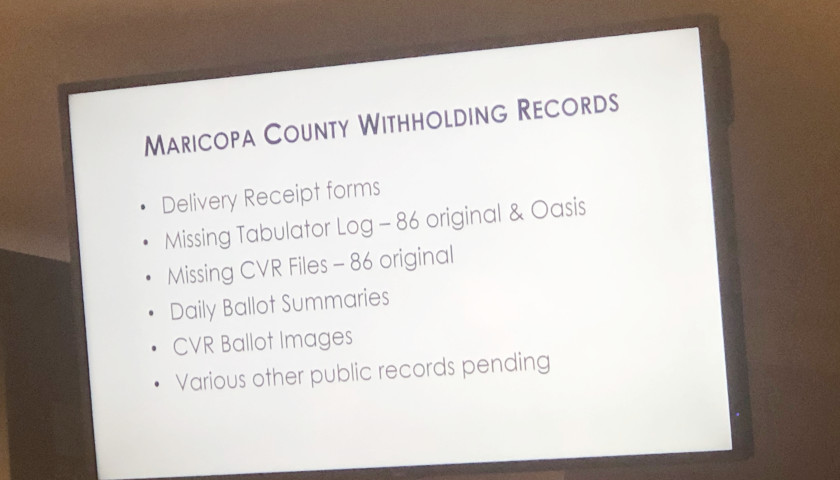The Arizona Senate’s Election Committee continued the second part of a hearing on Monday that began last week, featuring testimony from election integrity proponents. Shelby Busch, the co-founder of We the People AZ, and Heather Honey of Verify Vote, went over five areas where their team found apparent law violations by Maricopa County in the 2022 election.
Busch said during her presentation, “We want safe elections, not convenient ones,” sparking applause from the audience. State Senator Wendy Rogers (R-Flagstaff), the committee chair, kept a tight rein over the proceedings, often calling out the Democratic senators on the committee when they were out of line. One used the phrase “election denier,” and Rogers told her it was inappropriate.
Busch explained that her team found many violations of the state’s Election Procedures Manual (EPM), which are class 2 misdemeanors. The statute that addresses the EPM, A.R.S. 16-452(C), states that “A person who violates any rule adopted pursuant to this section is guilty of a class 2 misdemeanor.”
Busch’s team submitted public records requests to Maricopa County to investigate the 2020 and 2022 elections. Although the county turned over some of the data, there was a significant amount that it refused to or heavily redacted, which Busch is now fighting legally. One of the county’s excuses was it had misplaced the data.

Busch said she found election law violations in five categories. They were:
- adjudication of ballots, cast ballots that didn’t match;
- over 8,000 people who were unable to vote on Election Day;
- a backdoor portal to voter registration records that nonprofits were able to access; and
- around 300,000 ballots submitted to drop boxes that lacked a chain of custody
For adjudication, Busch said her team found that the rate went up sharply in the 2020 election and then the 2022 election. Normally, she said no more than four percent of ballots require adjudication, which means there was something incorrect with the ballot, such as an overvote or missing some information, so they go to a bipartisan board that reviews them. But in 2020, that percentage jumped up to 11.9 percent. In 2022, it increased to 14.36 percent.